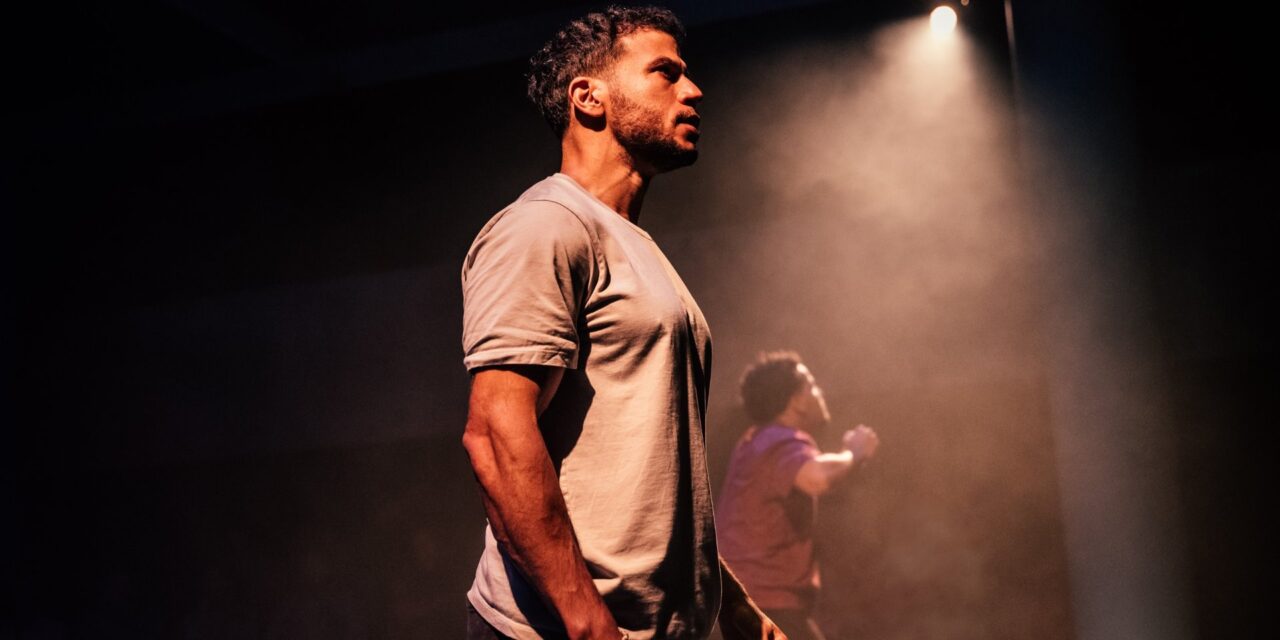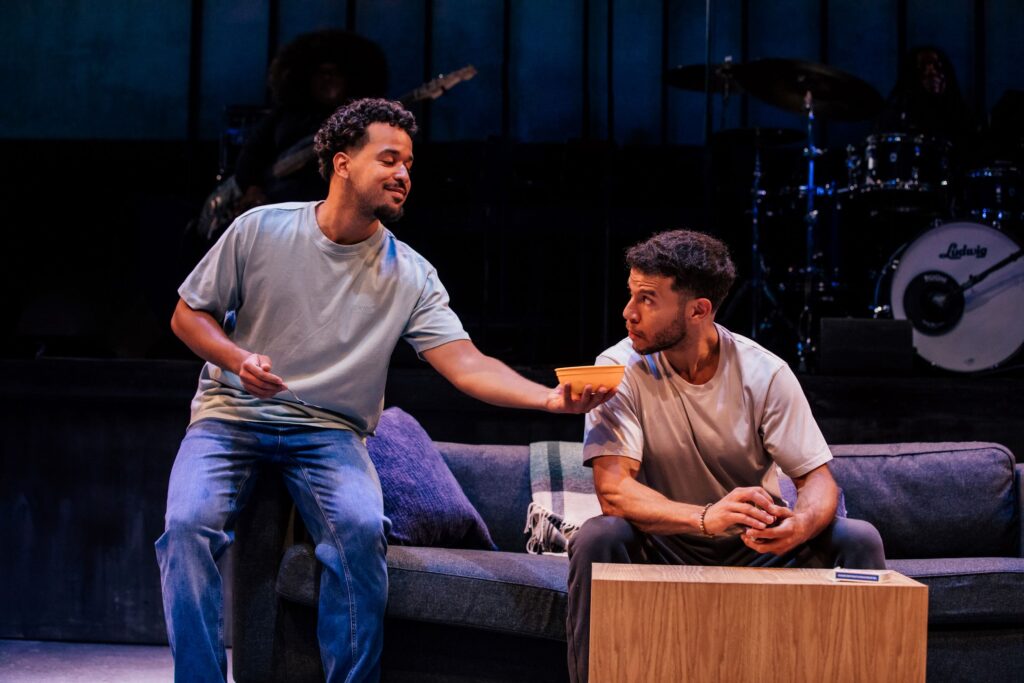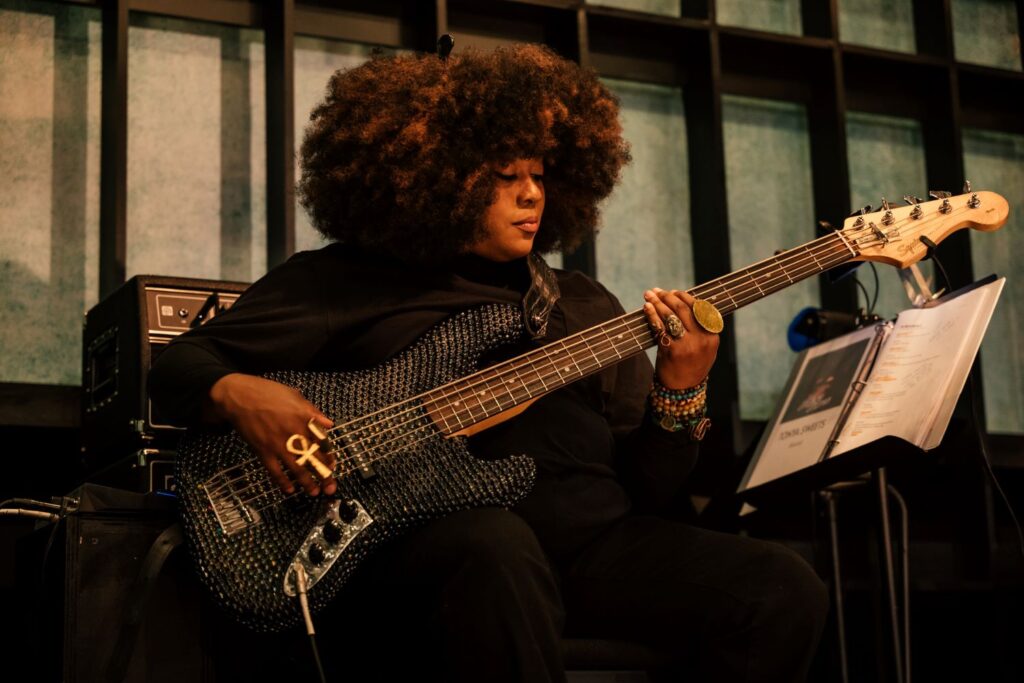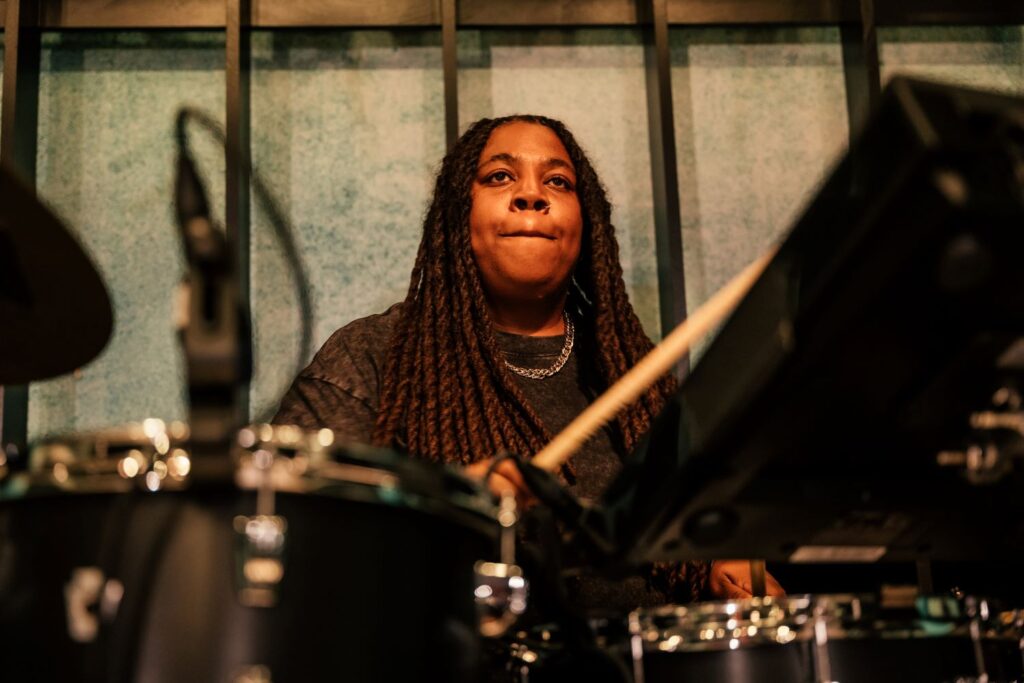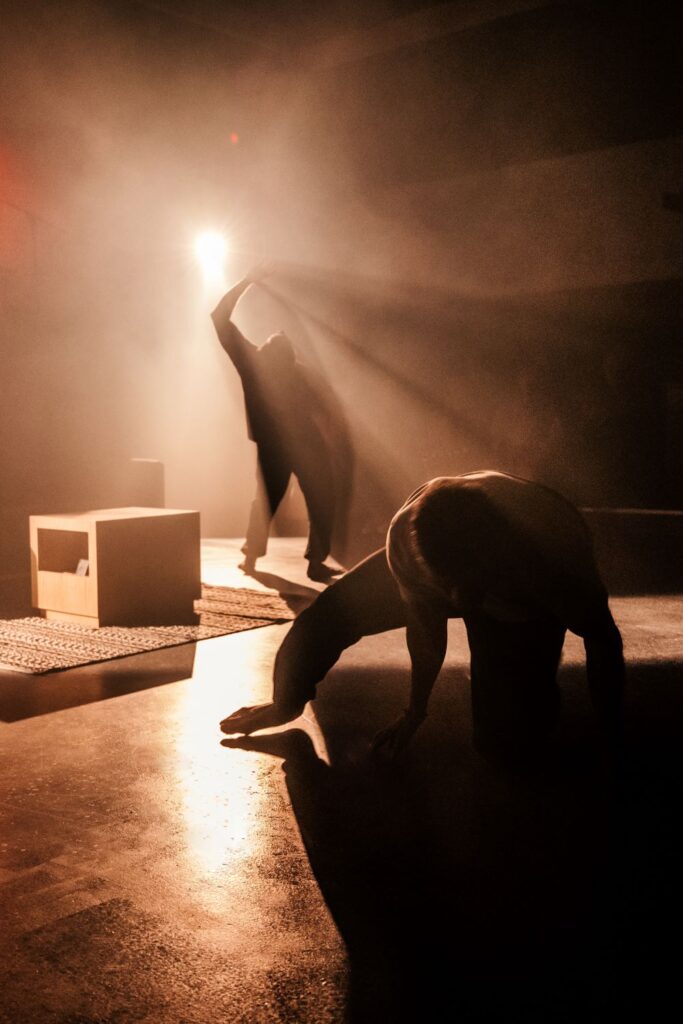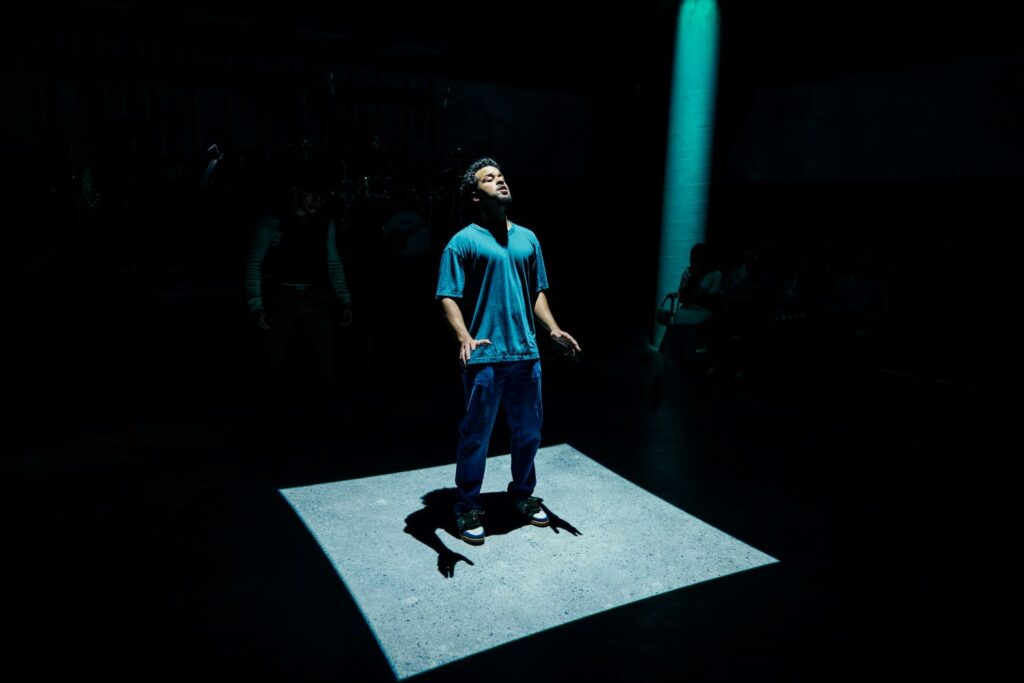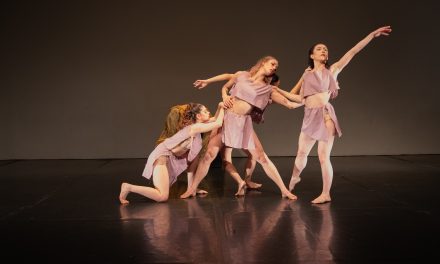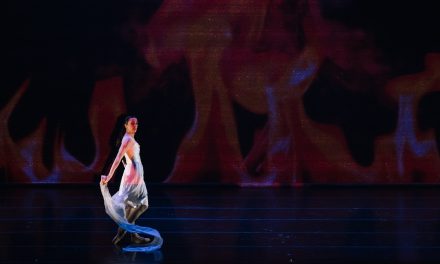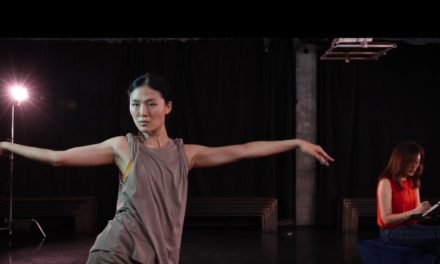Knock. Knock. Knock.
Bones shake. Brothers Bastian Monteyero (Alex Hernandez) and Fíto Palomino (Marlon Alexander Vargas) stand still, waiting in fear for the next rupture of noise. The world seemingly freezes, but you can see everything change within it in the way they move. Once standing tall, their stature crumbles at the weight of fear.
Rudi Goblen’s “Littleboy/Littleman,” running at the Geffen Playhouse and produced in association with Brixton House, utilizes movement as an internal voice that exposes the truths they seek to hide beneath a rough exterior. The story follows the Nicaraguan brothers as they navigate life in the U.S. Their definitions of the American Dream differ greatly, making for sharp collisions in both spoken word and movement. Fíto is a poet with big, risky ambitions of starting something new for himself. Meanwhile, Bastian is a telemarketer who seeks to assimilate. As they chase their own dreams under the same roof tensions brew, and their familial ties are tested.
Under the direction of Nancy Medina and movement direction by Christopher Scott, the production allows the psyche of the two brothers to manifest through the mundane tasks of everyday life. The show is set up in the round, with drummer and music director Dee Simon and bassist Tonya Sweets elevated on a small stage on one side of the performance space. Scenic designer Tanya Orellana offers little pockets and compartments for the duo to alter the space into their kitchen or Fíto’s street performance spot. The stage is empty, allowing for deeper dynamics to unfold, especially with dance and movement. As Fíto and Bastian argue, their relationship to the stage changes. The two pull out a couch, a rug and a table, establishing their living room. Fíto digs at Bastian, changing the set-up slightly by throwing a pillow or disheveling the blanket. Bastian quickly swoops in with his rebuttals by correcting each change. By saying very little, Medina crafts a sharp depiction of their brotherly dynamic.
Dance creeps in to provide Hernandez and Vargas’s performances a new texture that shapes the physical experience of Goblen’s text. In particular, Monteyero’s character gains a deeper complexity with movement during a call. His job as a telemarketer for the military comes to life as his pleas for money take over his body. He pauses and bends his knees at moments of stress and exaggerates his arms and hands when he finally gets a good response. His surrender to the movement also reflects his surrender to this American status quo. The movement itself is incredibly efficient, telling an entire story with few expenses and quick movements. The best comes out in a grander argument. As Fíto advances his point, he steps forward and Bastian steps back. Then Bastian takes his final big blow in the form of a yell. This time, Bastian steps forward and Fíto steps back. He won. With a simple step, this dance tells a punchy story.
At its core, “Littleboy/Littleman” is about sacrifice and the things we are willing to forego for our dreams. Goblen encapsulates this theme in the form of symbols and objects. The duo butt heads most when it comes to money. For Fíto, he views money as something that comes when you put in the right energy and mentality. His prized possession: a quarter around his neck that symbolizes his survival. Bastian, however, is constantly fighting for money. He literally spends his days pleading with strangers to send donations to the government. The ultimate achievement of assimilation—changing his last name—comes at a steep cost, forcing him to confront how much he values his family ties. Each object, including used feminine products and food, shapes how each character views the world with unexpectedly distinct dialogue. Everything about the merging of text and movement is poetic. The show starts with a guttural, “Ha, ha, ha!” to the rhythm of a rapturous drum. The drum itself, often used to replicate sounds of objects, becomes a motif that adds a new layer to the poem. It becomes just as important as the text in the final moments of the play.
“Littleboy/Littleman” sneaks beneath the skin with a deeply emotional story about immigration and the pursuit of Latinidad. Goblen smartly delves into complex conversations with simple events and seemingly MacGuffin dialogue. However, the dance of text, music and movement is intentional. On the surface, the play portrays itself as a story about brothers pursuing the American Dream. In reality, it is about two men still processing their boyhood. Within Fíto’s Veganism and Bastian’s desire to change his name, they search for Latinidad by unearthing their family lineage and cultural roots in the form of trips down memory lane, and quips at the expense of the other’s faults.
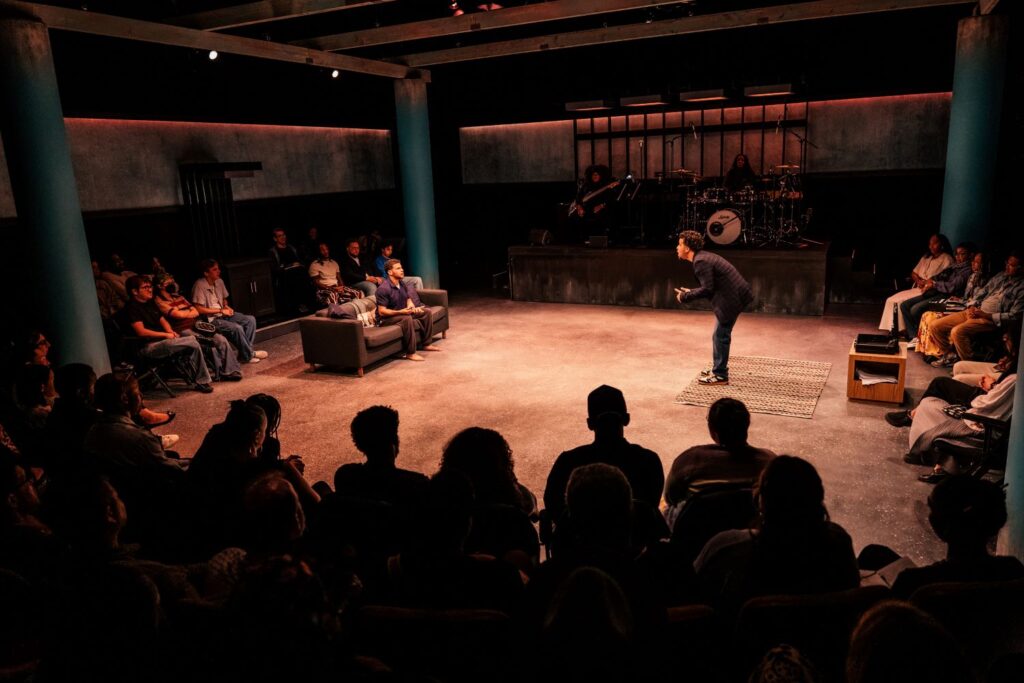
L-R Alex Hernandez, bassist Tonya Sweets, drummer Dee Simone and Marlon Alexander Vargas in “littleboy-littleman” – Photo by Jeff Lorch.
There’s a tear-jerking memory that surfaces in their quarrels. Bastian tells the story of Fíto’s childhood poems, revealing that the principal accused him of cheating because his writing was so good. Fíto’s poems sprinkled throughout the play feel more precious. We see the version of him on stage as a child, brilliant yet questioned because of his identity. Creativity and playfulness were stripped away from the brothers, and they were forced to grow up fast. After feeding into the American Dream for so long, they are now on a journey back home, one memory at a time.
“Littleboy/Littleman” continues at the Geffen Playhouse through November 2, 2025. For more information and to purchase tickets, please visit their website.
Written by Steven Vargas for LA Dance Chronicle.
Featured image: L-R Alex Hernandez and Marlon Alexander Vargas in “littleboy/littleman” – Photo by Jeff Lorch.

